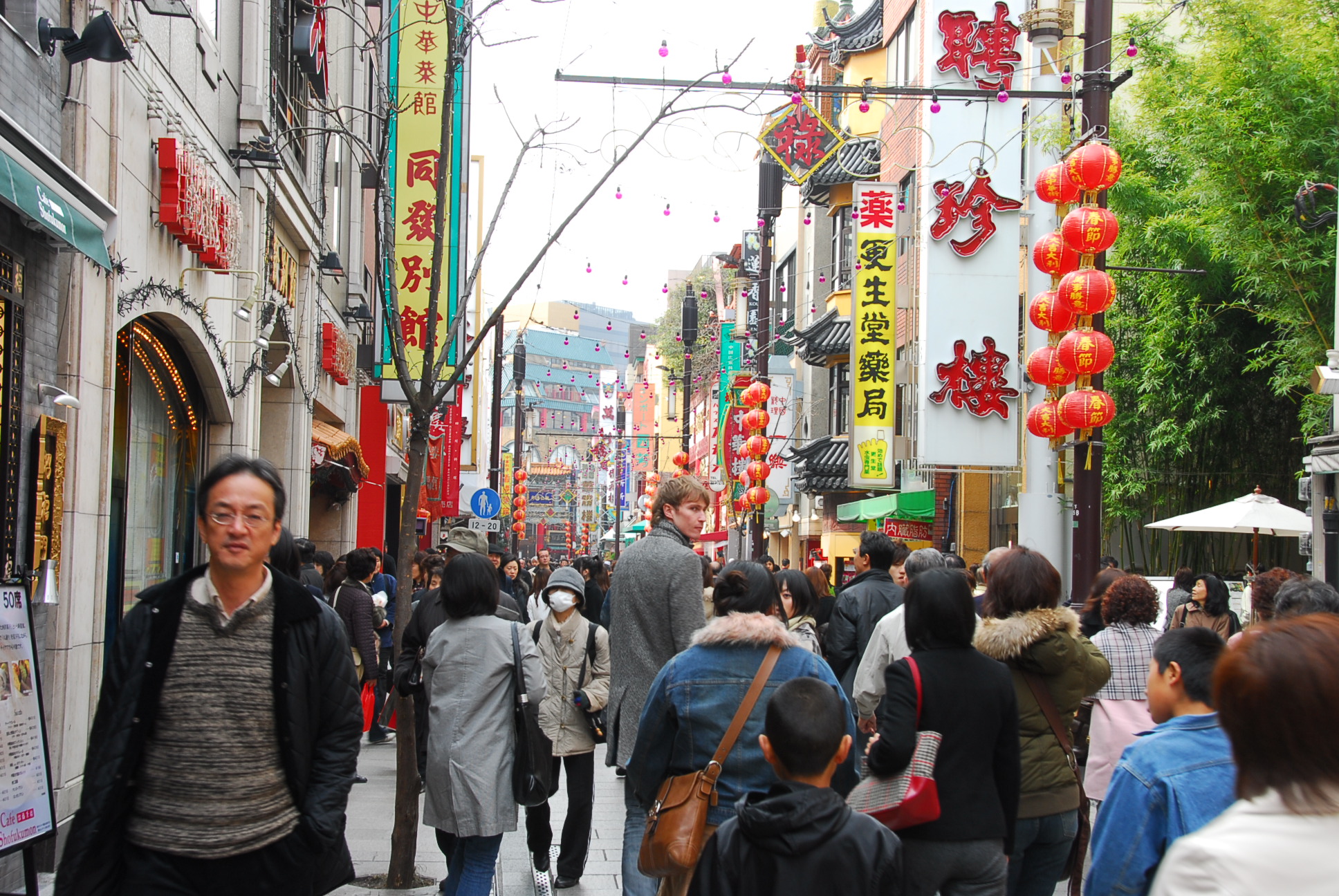Mish sums up what’s happening with consumer demand, which is weak as ever. So where have all the shoppers gone?
Consumer Demand For Nearly Everything Plunges
Retail stores and exporters alike are in deep trouble as consumer demand for nearly everything is plunging. Let’s take a look at some proof starting with Japan Exports Plunge Record 27% as Recession Deepens
Japan’s exports plunged the most on record in November as global demand for cars and electronics collapsed, signaling more factory shutdowns and job cuts are likely as the recession deepens.
Exports fell 26.7 percent from a year earlier, the Finance Ministry said today in Tokyo. That was more than the 22.3 percent decline estimated by economists and the sharpest since comparable data were made available in 1980.
Shipments to the U.S. slid an unprecedented 34 percent and sales to China slumped the most in 13 years, underscoring why the Bank of Japan lowered its key interest rate to 0.1 percent last week. The yen’s surge to a 13-year high is amplifying the woes of exporters including Toyota Motor Corp., which may announce a lower earnings forecast at a press briefing today.
“Japan’s export crash is finally upon us, and this is the worst thing that could happen,” said Yoshiki Shinke, a senior economist at Dai-Ichi Life Research Institute in Tokyo. “The recession will be very severe as companies adjust investment, production and labor.”
Idle Cranes From Long Beach To Singapore
Idle shipping cranes at Frozen Ports From Long Beach to Singapore portend a bleak 2009-2010.
Chris Lytle, chief operating officer of the port of Long Beach, California, took in a panorama of the slumping world economy from his rooftop observation deck one day this month. Shipping cranes stood still, truck traffic trickled and a cargo vessel sat idle, moored to a pier.
“You never see that,” Lytle said. “It’s quiet. Too quiet.”
Port traffic has slowed from North America to Europe and Asia as a recession erodes consumer demand and the credit crisis chokes off loans to export-dependent companies. International trade is set to fall by more than 2 percent next year, the most since the World Bank began measuring it in 1971. Idle ports around the globe are showing how quickly a collapse in trade can spread, undermining growth in each country it reaches.
“Everybody expects 2009 to be a bleak year,” said Jim McKenna, chief executive officer of the Pacific Maritime Association, a San Francisco-based group representing dock employers at U.S. West Coast ports. “Now, it looks like 2010 is going to be just as bleak.”
Coal is piling up at the Mozambique port of Maputo. Brazil’s exports of cars, household appliances, machinery and furniture fell in November from a year earlier. The port in Singapore, the world’s busiest for containers, posted its first month-over-month decline in seven years in November, at 1.5 percent.
“You take it for granted until it blows up,” said Bernard Hoekman, trade economist at the World Bank, in an interview. “Now it’s blowing up.”
Unsold Autos Pile Up on Lots
In the midst of the world’s biggest auto slump in decades, Toyota May Cut U.S. Payroll as Unsold Autos Pile Up on Lots.
The worst U.S. auto market since the early 1990s may force Toyota Motor Corp. to do something that was once unthinkable: cut its North American payroll.
Asia’s largest automaker, which hasn’t shed workers in 24 years of building cars in the U.S., is exhausting options to trim costs after halting work on a Prius plant in Mississippi, idling a Texas truck factory for 15 weeks and planning to pare U.S. and Canadian output next month.
“If we don’t see a rebound by the second half of next year, they’d probably have to consider layoffs,” said Haig Stoddard, an analyst at forecaster IHS Global Insight Inc. in Troy, Michigan. “Toyota was expanding to catch up with demand. Now it’s got itself stuck with overcapacity for the first time.”
Retailers Face Darwinian Fight as Losses Mount
A huge battle for shrinking consumer discretionary spending is underway. Yet, round after round of profit eating discounts have still not gotten consumers interested in spending. Retailers Now Face A Darwinian Fight For Survival as losses mount.
U.S. retailers will face a Darwinian fight for survival next year as they run out of cash as early as January and competition forces thousands of store closings, according to private-equity buyers and restructuring experts.
Probably 50,000 stores could close without any effect on consumer choice, Gregory Segall, a managing partner at buyout firm Versa Capital Management Inc., said yesterday during a panel discussion held at Bloomberg LP’s New York offices.
“The United States is massively over-stored in all categories,” Segall said. He said his firm is in “a wait mode” and he expects banks to squeeze retailers after Jan. 1.
Plunging home prices, rising unemployment and tightening credit have led consumers to rein in spending, resulting in what may be the worst holiday season in at least four decades. Macy’s Inc., Kohl’s Corp. and other retailers have marked down items 50 percent to lure customers, eroding margins at a time when store owners hope to make a third or more of their annual profit.
Only retailers with healthy balance sheets will survive the recession, said Matthew Katz, a managing director at consulting firm AlixPartners LLP.
“This is a very Darwinian time,” Katz said.
Weakening in Demand For Temporary Help
The temporary help market is grim. Staffing giant Manpower Sees Rapid Weakening in Demand
Manpower Inc. lowered its financial forecast for the fourth quarter, in the latest sign that the job market is weakening rapidly, and that the troubles are spreading to Europe.
The Milwaukee-based concern largely blamed a further decrease in demand for its services in most markets. "Many of our light industrial clients are taking prolonged plant shutdowns around the holidays compared to last year," Jeffrey A. Joerres, Manpower’s chairman and chief executive, said in a statement. Some clients have indicated their shutdowns may extend an extra week until Jan. 12, Mr. Joerres told analysts on a conference call.
Demand For Oil Drops
In a three-way battle between worldwide demand, peak oil, and OPEC, worldwide demand is calling the shots. This headline tells the story: Oil Falls on Signs OPEC Cuts Won’t Boost Prices as Demand Drops
The Organization of Petroleum Exporting Countries is "determined" to stabilize oil markets, Saudi Oil Minister Ali al-Naimi told reporters in Doha, Qatar, Dec. 21. Japanese crude- oil imports tumbled 17 percent to 3.71 million barrels a day last month, according to a report from the country’s finance ministry.
"The Japanese demand numbers help explain why OPEC is having such a hard time supporting prices," said Adam Sieminski, Deutsche Bank’s chief energy economist, in Washington. "Weak demand and increasing OPEC spare capacity are contributing to weaker prices."
One of Japan’s Asian neighbors, South Korea, also saw demand decline. Consumption dropped 12.4 percent in November from a year earlier. The country used 60.3 million barrels of refined products, data from state-run Korea National Oil Corp. showed yesterday.
"OPEC may be determined to stabilize oil prices, but with such poor demand it’s hard to see how any supply-driven initiatives can have a positive impact on prices," said Addison Armstrong, director of market research for Tradition Energy in Stamford, Connecticut.
Chips Are Down At Fujitsu
Falling demand for mobile phones, TVs, servers, etc have forced Fujitsu to Cut 400 Jobs at Japanese Chip Plants
Fujitsu Ltd., a Japanese maker of chips for servers, mobile phones and flat-panel TVs, will fire 400 workers at its domestic factories as demand for semiconductors declines amid a global recession.
Tokyo-based Fujitsu will reduce staff at its seven factories by terminating their labor contracts before their expiry next March, spokesman Toshiyuki Fukuoka said today. The company will almost quadruple job cuts from 100 planned earlier because of a slump in sales, he added.
Fujitsu will extend a halt in its output for holidays for longer than last year, Fukuoka said. The company’s rivals Toshiba Corp. and NEC Electronics Corp. earlier announced similar plans to halt output.
US vs. Japan
What was it that someone told me a year ago? Oh I remember now. "The US consumer will never throw in the towel. The US is not Japan".
Another person hit me with this tirade.
"Too even compare the citizens of Japan to the US is stupid, stupid, stupid Forest Gump! Culturally the Americans are spendthrifts compared to the Japanese. The comparison to Japan is hollow, North Americans have become drunk on excess and will keep spending until the repo vans appear in the driveway.
See Q&A on the Psychology of Deflation written January 11, 2007 for the the above quote and additional thoughts on the US vs. Japan as it pertains to deflation.
I concluded the above Q&A with….
I am amazed at the near universal belief that everyone seems to have in the Fed and the Government. The arguments proposed and the comments made seem to imply that the Fed can pull off some sort of miracle bailing out consumers by causing wages to rise, property values to rise, the stock market to rise, and to create enough jobs so that everyone can live happily ever after.
Financial and asset speculations of this magnitude throughout history have never ended well. There were deflationary crashes in Japan, the Great Depression, the South Seas bubble, the John Law Mississippi Bubble, Tulip Mania, etc. In each case the bubble collapsed after sentiment changed towards speculation. Once sentiment changed it was never again revived.
Pudding Is Served
When Japan faced deflation it had an internet boom and US consumer demand (exports) to cushion the blow. Japan also had savings to fall back on. The US has no such cushion, no savings, no source of jobs, and an extremely high level of consumer debt. I have been saying for years those factors make the deflationary pressures in the US far worse than anything Japan faced.
Pudding is served. That pudding is called deflation. And unlike Japan, the US threatens to take much of the world down in a deflationary spiral right along with it.
Eventually this had to happen given that nearly every country in the world, in some fashion or other, became hugely dependent on the US shopping center economic model that is now history.









